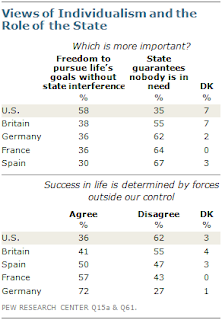Political wisdom, fiscal malpractice
Political wisdom, fiscal malpractice. That would be my description for the much ballyhooed "payroll tax cut" supported by a bipartisan chorus of political leaders. The cut is good politics — and fiscal malpractice. Let's begin with some basic facts on the payroll "tax" situation: Most of us with 401K or similar retirement plans invest between 3% to 6% and employers match some portion of this contribution. That's basically how Social Security is also structured: the employee and employer contribute to the fund. The previous and supposedly standard payroll deduction for Social Security is 6.2% of your first $110,100 of income. With the "temporary" reduction, workers are contributing only 4.2% of that income to Social Security. If you are self-employed, you normally pay 12.4% to Social Security, but with the "reduction" you are paying "only" 10.4% (the employer's 6.2% plus the employee's 4.2% rates). The so-called ...
